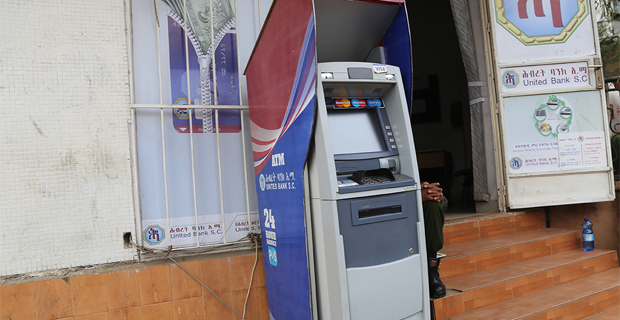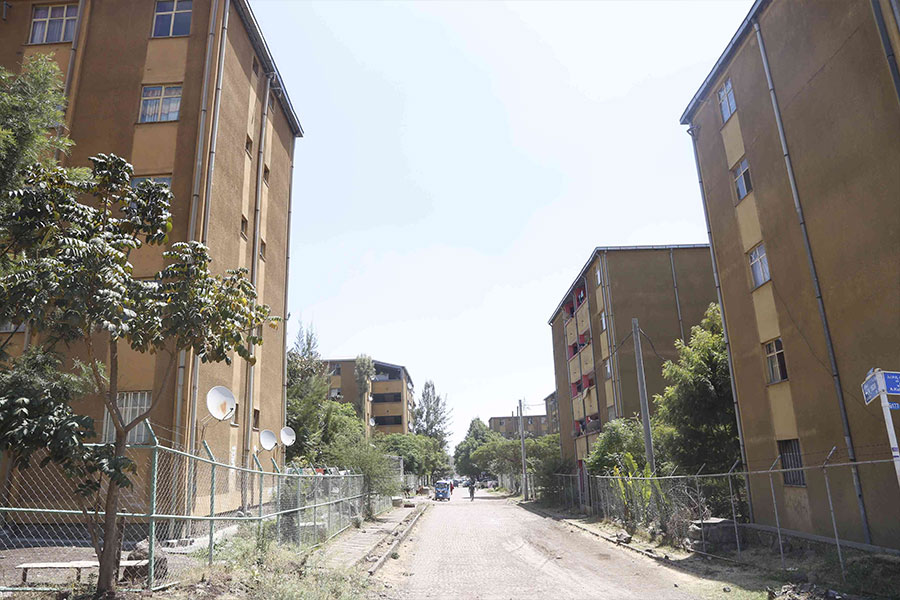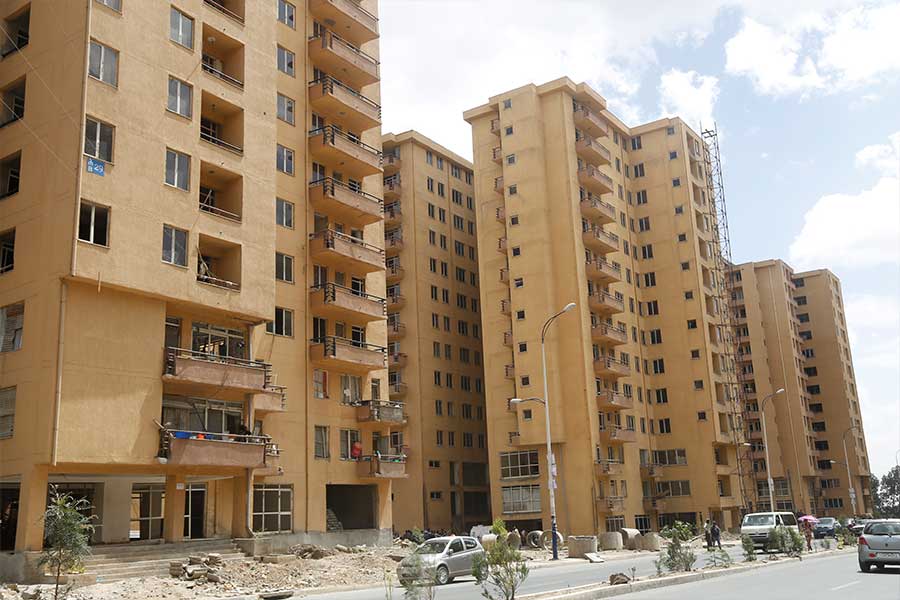
Radar | Dec 17,2022
Yonathan Abebe, 27, joined the queue at one of the Total Energies service outlets near Mexico Roundabout to refill gas on a cloudy morning last week.
Some of the dozen vehicles before him had been waiting for hours.
He stepped out of his white truck and began pacing restlessly- his eyes turned red from fury and his palms were ashy from the misty cold.
The impatience turned to frustration as hours passed without significant progress towards the gas dispensers.
"I was supposed to be at work two hours ago," he told Fortune.
Yonathan provides delivery service for a private company with weekly earnings of 600 Br. Living in a Kebele house around the Abinet area with his mother, the breadwinner is anxious that he might be losing money while waiting around.
The compulsory cashless transaction at gas stations that began last week has drivers in the capital spending hours in what seems like a never-ending queue.
The plan to make the digital fuel payment system mandatory was announced by the Ministry of Transport & Logistics a month ago. Minister Alemu Sime (PhD) said the payment is integrated with a fuel registration and allocation system in service outlets across the country.
The transaction has been made using a digital platform Telebirr, powered by the state-owned Ethiotelecom.
No less than four facilitators from Telebirr in green shirts are dispersed on every corner tending to drivers who are having trouble communicating with their phones.
Selamawit Kifle is one of the facilitators circled by four men waiting to get their problems addressed. Some are struggling with activating their accounts, while others are waiting to open a new one. It takes her up to 10 minutes to serve each person.
"It’s getting better as the days pass," she said.
Telebirr application is implemented using both the USSD code and its Super App in 150 gas stations in the capital.
Over 212 million fuel transactions have been made through Telebirr since the new requirement was enacted. The subscribers increased from 27.2 million in January to over 31 million last week.
Mesay Wubshet, chief communication officer at Ethiotelecom, believes enough human resources have been dispatched with up to 10 facilitators at every station to register new users.
According to him, the literacy issue among customers and the service outlets not working at their full capacity contributed to the debilitating lines and long hours of wait.
The new system seems to challenge most that are unfamiliar with the application. However, customers who had trouble making payments due to system failure were also left wandering for solutions.
Hiwot Getachew who had waited for over two hours saw her Telebirr account was out of balance. She tried to access her Commercial Bank of Ethiopia account and transfer money, but the order failed continually.
"The system doesn’t work," she said frustrated.
Mesay completely disregards the notion of system failure but admits that there could be a speed issue as the telecom has a large number of subscribers.
“We’ve been monitoring the network service centre and internet towers very closely," he told Fortune.
Public transporters seem to escape this impediment as they have been accustomed to the App for 10 months while benefiting from a fuel subsidy.
Daniel Tilahun, a taxi driver for eight years, waited in line for less than 20 minutes before the pump attendant sought him out from the lined-up vehicles and let him up front. He was done in two minutes.
However, attendants have not had it easy as they spend more time than they are accustomed to with one customer to receive payments. Spared from it are those that have exhausted their stock.
A branch of Total Energies around Meskel Square seemed rather empty. Five pump attendants are idle, discarding passing drivers eyeing their vicinity.
The station sells up to 25,000lt of fuel during an average day tending to more than 200 drivers.
"We’re out of fuel," shouts Abebe Argaw. "We’ve been out since morning," he told Fortune.
Abebe, who had been attending pumps for six years claims to have “never felt more tired” serving countless people who come by without a know-how on the use of the App.
He observed that customers forget their passwords while others come in without opening an account. The cashless transaction disregarding his usual tips of up to 300 Br per day is also not helping with the lack of enthusiasm.
Despite the tiresome assistance to the flooding customers, managers try to see the flicker of light, claiming the digital system appeases the wide cash transactions.
“It’ll also allow authorities to gain proper control over the fuel supplies,” said Girma Assefa, manager of the Stadium service outlet of Total Energies.
The Petroleum & Energy Authority regulates fuel imports and distribution from the ports in Djibouti to 146 stations in the capital and 1,100 gas stations across the country through 43 oil companies.
Bekelech Kuma, the Authority’s communications head, concurs the digital system will combat fuel shortages in gas stations and cross-border contraband trade.
According to Bekelech, the Authority has found gas stations hoarding despite the adequate supply while others have been selling more than the set tariff. She disclosed the Authority will supply fuel after going through the number of transactions made by the stations.
Fuel suppliers had raised concerns over the declined number of sales during the week claiming to have taken extra time to serve a customer.
Bekelech however, argues that most stations do not operate at their full capacity using one-third of their dispensers.
"It's not because of system failure," said Bekelech.
Authorities believe that digitisation will regulate the distribution and reduce wasted amounts.
Abduleber Shemsu, fuel reform facilitator at the Ministry of Transport & Logistics, disclosed that digital fuel transaction has been part of the reformation beginning two years ago.
He said the Ministry has paved the way to create awareness for the past two months. The lack of proactiveness from consumers, coupled with the panic surfacing over the week, has contributed to the unnecessary long lines in the city.
"It’ll return to normal in a couple of weeks," he told Fortune.
He recommends customers be patient with the glitches that might happen along the way until it dies down.
Several other options are launching their service over the week to facilitate the cashless transaction.
Earlier last week the Ministry of Transport & Logistics and the state-owned Commercial Bank of Ethiopia (CBE) struck a deal which came in two sets.
Dubbed the "Fuel App", the first option works using the CBE Birr payment system. The second one has an application with the moniker "Nedaj" that will be able to integrate CBE accounts and allow users to transact payments. The local software developer, Eaglelion System Technology Plc, partnered with the Bank a few months ago.
EagleLion added a new feature, "Nedaj Standby”, to the new application, where customers will click one button and immediately make transactions.
“It makes the application easier to use,” said Besufikad Getachew, CEO of Eaglelion told Fortune.
Besufikad disclosed that the company has made plans to work with all the commercial banks, where some have already shown interest in working with Eaglelion.
Besufikad says over 100 gas stations and 50,000 drivers have registered daily.
Users on social media were dismayed over the registration system, which included a 50 Br registration, 20 Br subscription and five Birr service fee that was removed from the app a few days later.
Established three years ago with 15 million Br in registered capital, EagleLion has developed micro-credit and digital remittance platforms for Dashen Bank and the Bank of Abyssinia.
Abdulber disclosed that 10 commercial banks have shown interest in servicing the digital payment system to the Ministry. He said they are discussing the requirements and technical aspects with bank executives.
The notion of making cashless service mandatory is lost on legal experts who believe that customers should have the right to get service by choosing the mode of payment.
The monetary law under the National Bank of Ethiopia stipulates that the currency notes are legal tender and service providers cannot deny customers the right to use the services. A lawyer who requested anonymity argues that unless a revised law making digital payments mandatory in selected areas is passed, it remains against the monetary law.
"Service provider cannot say no to cash,” he told Fortune.
According to Fikadu Digafe, vice governor of central bank, the Bank has authorised both the electronic and cash payment systems. However, he said the central bank remains a bystander when it comes to whether a service provider shall reject or accept the cash currency.
"It shall be seen under the law, not by us," he told Fortune.
The nationwide operation is set to unfold next week.
Serkalem Gebrekiristos, the former CEO of Dalol Oil, said while the compulsatory system is opening doors to transparency and control of the cash flow, it was rushed in without the proper analysis of the impact on wider society.
PUBLISHED ON
Apr 29,2023 [ VOL
24 , NO
1200]

Fortune News | Jul 22,2023

Fortune News | Apr 13,2020

Fortune News | Aug 26,2023

Fortune News | Apr 16,2022

Radar | Sep 27,2025

Dec 22 , 2024 . By TIZITA SHEWAFERAW
Charged with transforming colossal state-owned enterprises into modern and competitiv...

Aug 18 , 2024 . By AKSAH ITALO
Although predictable Yonas Zerihun's job in the ride-hailing service is not immune to...

Jul 28 , 2024 . By TIZITA SHEWAFERAW
Unhabitual, perhaps too many, Samuel Gebreyohannes, 38, used to occasionally enjoy a couple of beers at breakfast. However, he recently swit...

Jul 13 , 2024 . By AKSAH ITALO
Investors who rely on tractors, trucks, and field vehicles for commuting, transporting commodities, and f...

Oct 18 , 2025
The political establishment, notably the ruling party and its top brass, has become p...

Oct 11 , 2025
Ladislas Farago, a roving Associated Press (AP) correspondent, arrived in Ethiopia in...

Oct 4 , 2025
Eyob Tekalegn (PhD) had been in the Governor's chair for only weeks when, on Septembe...

Sep 27 , 2025
Four years into an experiment with “shock therapy” in education, the national moo...